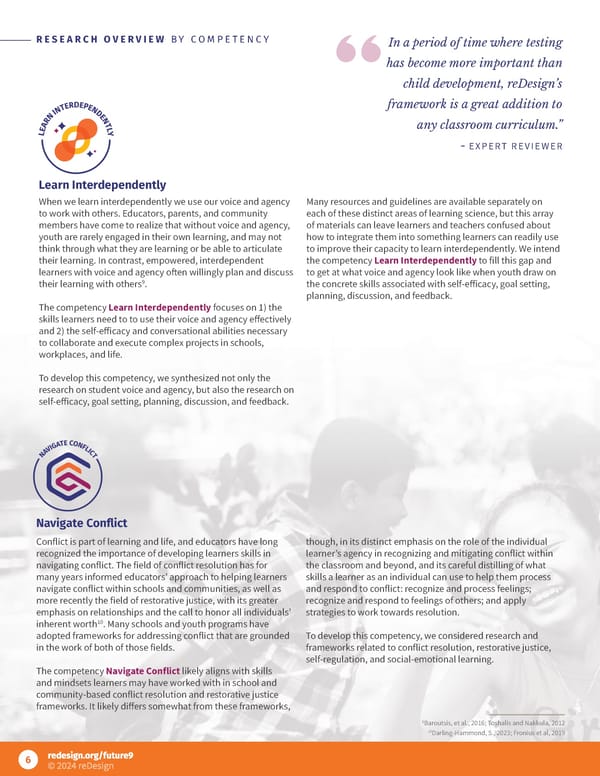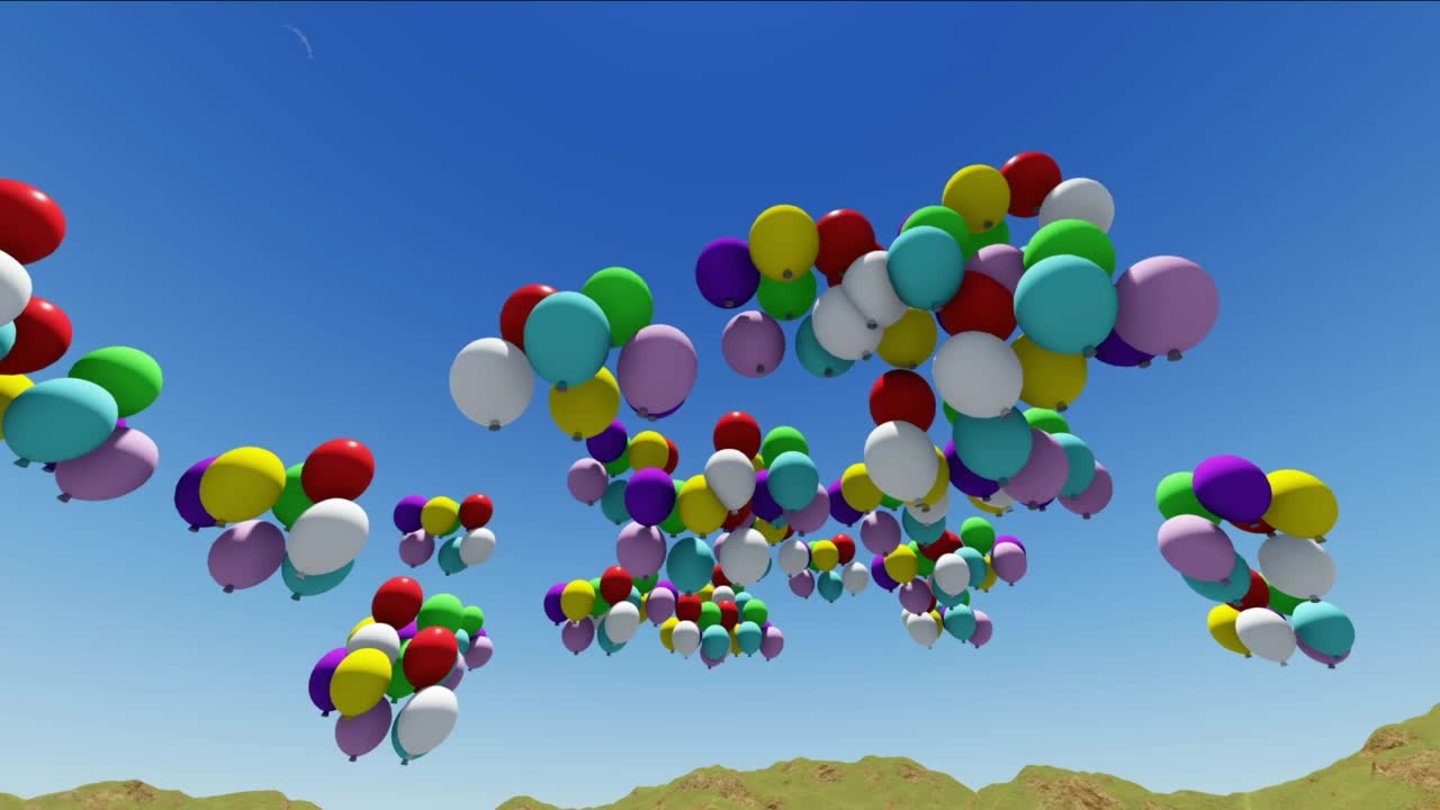RESEARCH OVERVIEW BY COMPETENCY In a period of time where testing has become more important than child development, reDesign’s framework is a great addition to any classroom curriculum.” - EXPERT REVIEWER Learn Interdependently When we learn interdependently we use our voice and agency Many resources and guidelines are available separately on to work with others. Educators, parents, and community each of these distinct areas of learning science, but this array members have come to realize that without voice and agency, of materials can leave learners and teachers confused about youth are rarely engaged in their own learning, and may not how to integrate them into something learners can readily use think through what they are learning or be able to articulate to improve their capacity to learn interdependently. We intend their learning. In contrast, empowered, interdependent the competency Learn Interdependently to fill this gap and learners with voice and agency o昀琀en willingly plan and discuss to get at what voice and agency look like when youth draw on 9 their learning with others . the concrete skills associated with self-e昀昀icacy, goal setting, planning, discussion, and feedback. The competency Learn Interdependently focuses on 1) the skills learners need to to use their voice and agency e昀昀ectively and 2) the self-e昀昀icacy and conversational abilities necessary to collaborate and execute complex projects in schools, workplaces, and life. To develop this competency, we synthesized not only the research on student voice and agency, but also the research on self-e昀昀icacy, goal setting, planning, discussion, and feedback. Navigate Con昀氀ict Conflict is part of learning and life, and educators have long though, in its distinct emphasis on the role of the individual recognized the importance of developing learners skills in learner’s agency in recognizing and mitigating conflict within navigating conflict. The field of conflict resolution has for the classroom and beyond, and its careful distilling of what many years informed educators’ approach to helping learners skills a learner as an individual can use to help them process navigate conflict within schools and communities, as well as and respond to conflict: recognize and process feelings; more recently the field of restorative justice, with its greater recognize and respond to feelings of others; and apply emphasis on relationships and the call to honor all individuals’ strategies to work towards resolution. inherent worth10. Many schools and youth programs have adopted frameworks for addressing conflict that are grounded To develop this competency, we considered research and in the work of both of those fields. frameworks related to conflict resolution, restorative justice, self-regulation, and social-emotional learning. The competency Navigate Conflict likely aligns with skills and mindsets learners may have worked with in school and community-based conflict resolution and restorative justice frameworks. It likely di昀昀ers somewhat from these frameworks, 9Baroutsis, et al., 2016; Toshalis and Nakkula, 2012 10 Darling-Hammond, S., 2023; Fronius et al, 2019 6
 Dig into the Why Page 5 Page 7
Dig into the Why Page 5 Page 7
